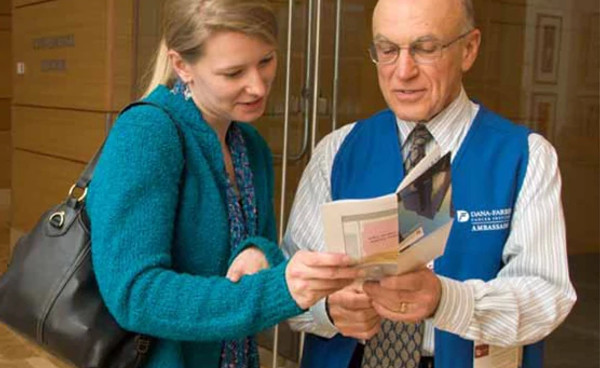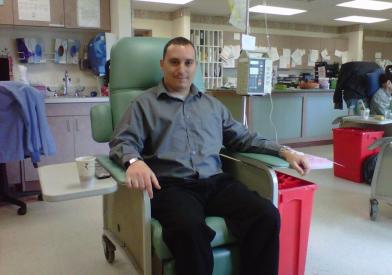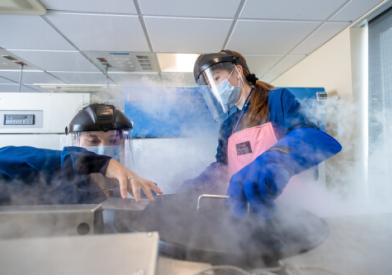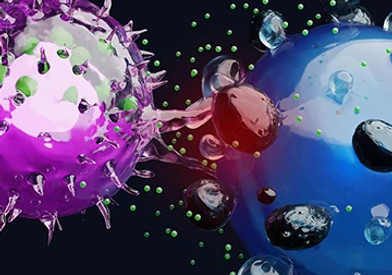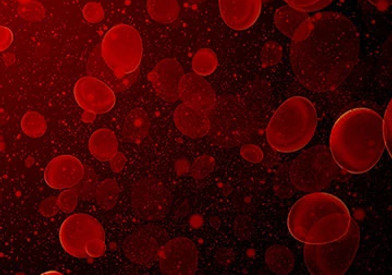Cellular therapies are designed to improve the immune system's ability to fight cancer. Manufacturing them involves collecting a specific set of cells from the blood, modifying them to produce a more vigorous attack on a patient's cancer cells, and then reinjecting them into the patient.
Cellular therapies differ from stem cell transplantation in that the cells collected are not blood-forming stem cells. Instead, they may be certain types of immune system cells, including a subgroup of T cells capable of killing tumor cells. They may also be tumor cells themselves that have been re-engineered to draw an attack by the immune system. And, unlike the cells used in a classical bone marrow transplant, the collected cells are altered before being infused back into the patient.
The Cellular Therapies Program at Dana-Farber Brigham Cancer Center builds on our expertise in stem cell transplantation. Cells are processed at an outside commercial facility or at the Connell and O'Reilly Families Cell Manipulation Core Facility, which has long been at the forefront of producing cell-based therapies for cancer and other diseases.
Many types of cellular therapy for cancer are being explored, including CAR T cells, other genetically modified T cells, tumor infiltrating lymphocytes (TIL), vaccines, and NK cells.
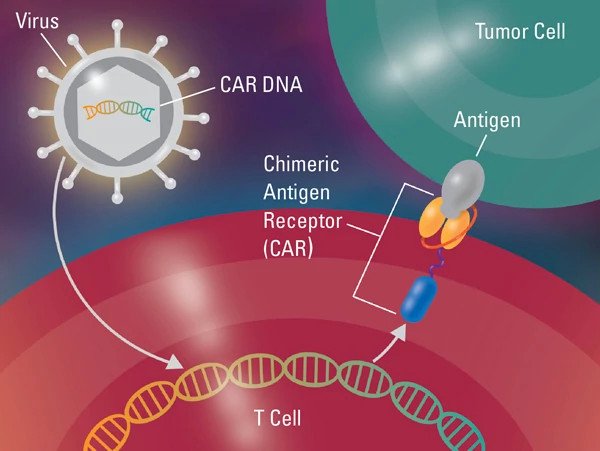
At Dana-Farber Brigham Cancer Center, clinical trials of cellular therapies are now underway for the treatment of an expanding number of cancer types and non-cancerous diseases. We encourage you to check with your care team for more information about the availability of cellular therapy trials for your particular condition.


